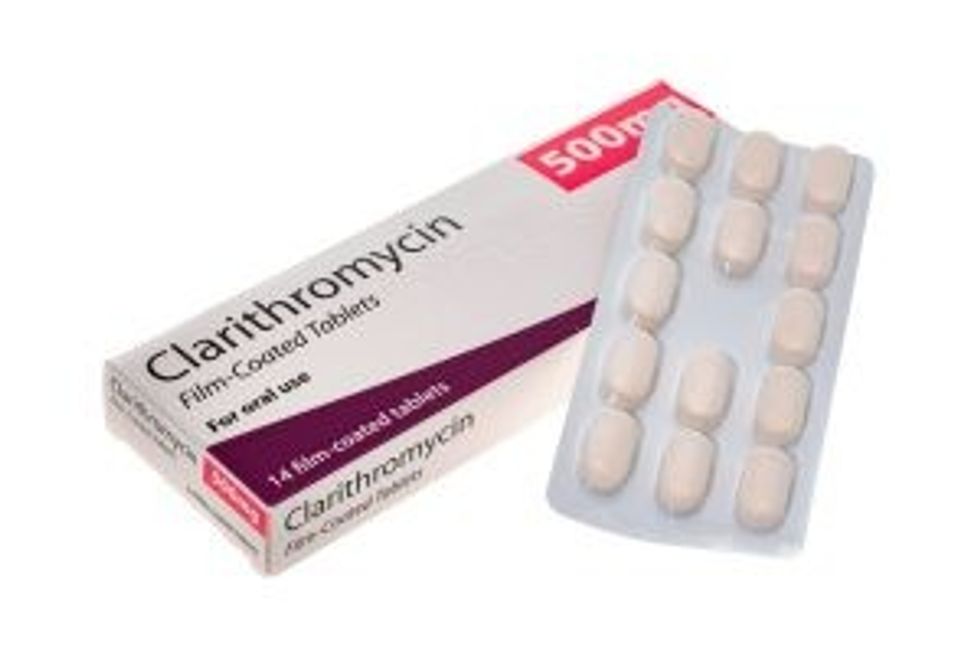Whooping cough caused five infant deaths in the first quarter of 2024, according to UKHSA
Pharmacists in the UK are reporting significant shortages of a common antibiotic used to treat whooping cough (pertussis), amid rising cases of this bacterial infection.
Dr. Leyla Hannbeck, chief executive of the Independent Pharmacies Association (IPA), told BBC Radio 4's Today programme that clarithromycin, one of the key antibiotics for treating whooping cough in children, is “completely out of stock.”
Clarithromycin is an antibiotic commonly recommended for babies and infants under the age of 1 month.
Dr. Leyla said that as pharmacies cannot get the antibiotic, they are being forced to turn patients away or send them back to their doctors to have their prescriptions changed to azithromycin or other antibiotics for treating whooping cough.
“When you go to order clarithromycin from the supplier, it shows the red baskets, which means that that product is not available for order. So, when you get a prescription coming in, you have no choice but to send the patient back to the doctor.”
“There's another issue. Sometimes pharmacists could amend things on the prescription easily so that the patient doesn't have to go through from pillar to post to get something. But we can't even do that because of the bureaucratic issues around it.”
She added that pharmacists consistently find themselves in situations where the supply chain cannot meet the demand.
However, BBC Radio 4 presenter, Michelle, informed Dr. Leyla that a spokesperson from the Department of Health and Social Care (DHSC) claimed they are not aware of any supply shortages of antibiotic treatments for whooping cough, stating that these medications are currently available across the country for those in need.
Dr. Leyla responded: “That's the key problem. The department has been in denial for so many years and we on the frontline have been seeing the medicine shortages getting worse and worse every year.
“It's worse than it's ever been and part of the issue is their denial and not having a strategy to tackle the consistent issue with medical supplies.”
Dr. Leyla emphasised that timely treatment of whooping cough is crucial to prevent its spread and effectively treat the patient. However, this is being delayed due to the shortage of the key antibiotic.

The IPA chief executive cautioned that the shortage of clarithromycin might exert additional strain on the availability of other antibiotics, such as azithromycin - another common treatment for whooping cough.
While also mentioning the past instances of penicillin shortages, Dr. Leyla called for a national strategy to ensure preparedness for future shortages like this.
“There's got to be a way to tackle this issue. Firstly, the department needs to realise that there is a problem, and secondly, bring everyone together to establish a national strategy.”
Whooping cough causes 5 infant deaths this year
As per the latest data from the UK Health Security Agency (UKHSA), there were a total of 2,793 reported cases of whooping cough in the first quarter of 2024 (January to March), with 556 cases in January, 918 in February, and 1,319 confirmed cases in March.
Sadly, there have been five infant deaths during this quarter.
The decline in the uptake of vaccinations that protect against whooping cough in recent years is believed to be one of the factors contributing to the rise in cases across England and many other countries since December 2023.
“Vaccination remains the best defence against whooping cough and it is vital that pregnant women and young infants receive their vaccines at the right time,” said Dr Gayatri Amirthalingam, Consultant Epidemiologist at UK Health Security Agency.
She cautioned that while whooping cough can affect people of all ages, it can be “extremely serious” for very young babies.


















